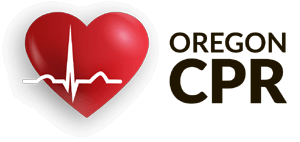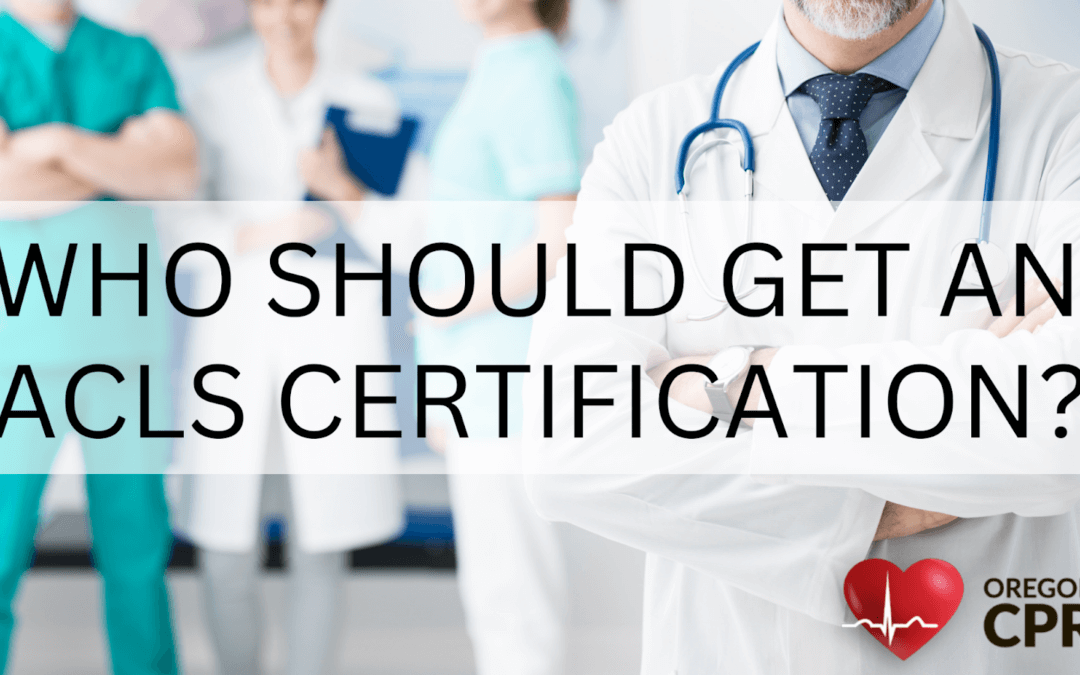Advanced Cardiovascular Life Support (ACLS) is a series of clinical interventions and algorithms used to treat life-threatening cardiovascular events. An Advanced Cardiovascular Life Support certification is recommended for healthcare professionals who may have to respond to cardiac emergencies and/or strokes. This includes but is not limited to the following:
- Doctors
- Nurses
- Paramedics
- RN Nurses
- Emergency Room staff
- Cardiologists
- Pulmonologists
- Paramedics
- Respiratory therapists
- Neonatology
- Healthcare professionals who either direct or participate in the management of cardiopulmonary arrest or other cardiovascular emergencies.
Doctors who work in hospitals and other facilities where emergency cardiac events may occur, and experienced paramedics are ideal candidates for an Advanced Cardiovascular Life Support course. Nurses in intensive care units, emergency rooms, hospitals, senior care facilities, and nursing homes are also highly encouraged to participate in an ACLS training. Nurses (RNs, LPNS) must be certified in some ACLS practices listed below before moving forward with an Advanced Cardiovascular Life Support course.
Healthcare professionals that qualify for an ACLS course will know the following:
- How to read an electrocardiogram (ECG)
- How to administer medications intervaniously
- Have basic knowledge of anatomy, physiology, and pharmacology
The ACLS courses we offer at Oregon CPR are best suited for qualified medical professionals to intubate a patient and administer intravenous medications. If you are one of the candidates mentioned above, it is encouraged that you get as much training with and knowledge about reading ECGs and an understanding of basic pharmacology. A course in ECGs and basic pharmacology may help ACLS course participants have better learning outcomes. In addition, qualified personnel who take an Advanced Cardiovascular Life Support Course can administer higher levels of life-saving support.
When registering for an Advanced Cardiovascular Life Support course, you will be encouraged to take a self-assessment exam to determine if you are qualified enough to benefit from and participate in this advanced training. Medical professionals may be expected to or required by their employer to get and maintain an ACLS certification through an accredited organization like Oregon CPR. If you work with patients at risk of experiencing a cardiovascular emergency or stroke, it is recommended that you get certified in ACLS. If you are an administrator or manager of a facility or program that would benefit from your staff receiving an Advanced Cardiovascular Life Support course, don’t hesitate to contact us about offering group trainings. You can request group and on-site trainings here: https://orcpr.com/groups/.
An ACLS certification is not for police officers, educators, therapists, alternative medicine practitioners, or lay persons who lack basic knowledge of the essential skills needed to provide Advanced Cardiovascular Life Support to people experiencing a stroke or cardiovascular event. If you are one of these people listed above and are interested in learning skills to support your loved ones, clients, or community members in an emergency situation, please take some time to look at our CPR & AED or Basic Life Support (for medical professionals that fall outside the ACLS criteria) training here: https://www.orcpr.com/.
Oregon CPR is dedicated to providing our clients with the best ACLS training around. We have recently invested over $20,000 into our Advanced Cardiovascular Life Support courses, which includes a MegaCode Kelly and ECC kid and baby. This high quality equipement allows for us to provide you and your team with real life experiences that a basic CPR manikin could not. This brand new equipment teaches students how to react to situations quickly and efficiently. By using this equipment in Oregon CPR’s ACLS course, students get to learn skills in CPR, ACLS, NBC, trauma, bleeding, and first aid. They allow for inseration of standard airway devices, LMA, and combitube, and we can train students in chest tube and IV insertion using these manikins as well. Please contact us if you want to learn more!
PALS Pediatric Advanced Life Support (PALS) certification is for healthcare professionals who may need to respond to emergencies involving children and infants. This includes people working in emergency response, emergency medicine, intensive care, or critical care units, such as physicians, nurses, paramedics, firefighters, and police officers.
PEARS The Pediatric Emergency Assessment, Recognition, and Stabilization (Pediatric PEARS) course is designed for healthcare providers who may encounter pediatric emergencies in their work, but who don’t specialize in pediatrics or work in critical care areas. This includes:
- Nurses, including medical and surgical, school, and homecare nurses
- Physicians and physician assistants
- Emergency medical technicians (EMTs)
- Respiratory therapists
- Prehospital and in-facility healthcare providers
- Outpatient clinic staff
- School-based providers
- Paramedics

